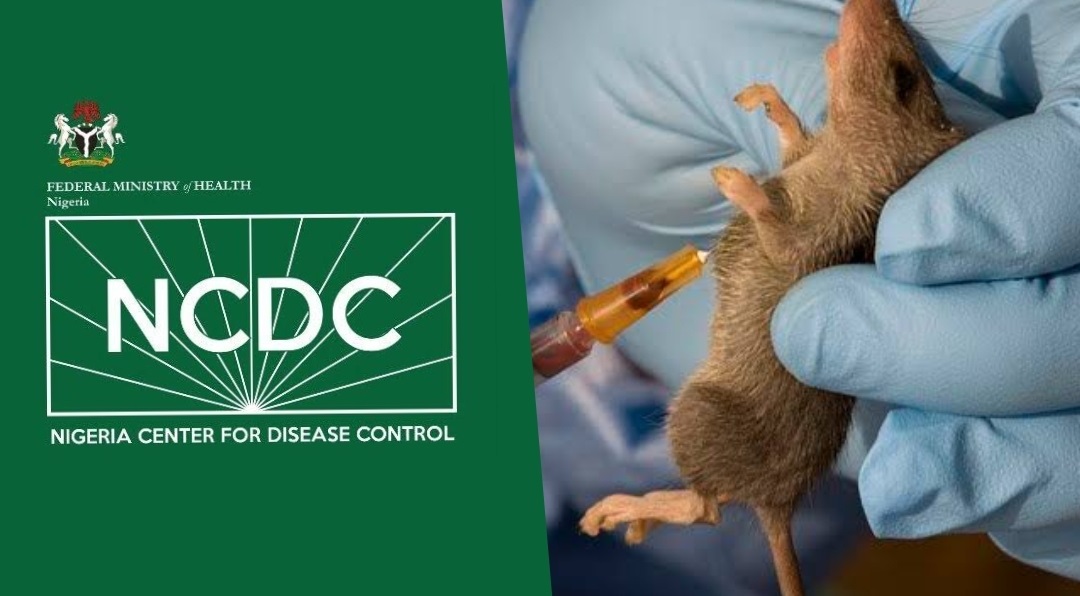Health
HIV-positive pregnant women can now have vaginal delivery –NACA

By Francesca Hangeior.
Now, pregnant women living with the Human Immunodeficiency Virus who are on Antiretroviral Therapy and have a low or undetectable viral load can have a vaginal delivery, says the National Agency for the Control of AIDS.
In as much as HIV can pass to the infant during birth, NACA said the risk of transmission is low in women with virally suppressed loads.
The agency noted that the advances in HIV treatment have greatly lowered the chances that a birthing parent would pass HIV on to their baby (also known as perinatal HIV transmission, vertical transmission, and sometimes called ‘mother-to-child’ transmission).
According to NACA, Nigeria has the highest burden of children born with HIV in the world.
It, however, warned that HIV can be transmitted from an infected mother to her child during pregnancy, childbirth, and breastfeeding if she is not on treatment.
The Deputy Director, Community Prevention and Care Department, NACA, Dr Yewande Olaifa, said for many years now, pregnant women living with HIV have been giving birth vaginally and not only through caesarean sections.
Olaifa said, “Yes, for over a decade now, vaginally, women can deliver unless it is contraindicated because of obstetrics matters.
“But as long as there is no contraindication, she can deliver per vaginal irrespective of the fact that she is HIV positive.
“What is important is that if she is HIV positive, she is on treatment not only for herself but also for the baby. So if we can bring the viral load down with ART, the probability that she will transmit to the baby is limited.”
The American College of Obstetricians and Gynaecologists also affirms that vaginal delivery is appropriate for HIV-infected pregnant women, who have been maintained on combined antiretroviral therapy and who have viral loads of 1,000 copies/mL or less at or near delivery.
Speaking further, the deputy director said it is also compulsory to test all pregnant women for HIV when they come to for antenatal clinic, stressing that it helps in the prevention of motor-to-child transmission of the disease.
According to the World Health Organisation, without any intervention, the risk of HIV transmission from a mother to her child during pregnancy, labour, delivery, or breastfeeding can be as high as 45 per cent.
As such, the WHO states that the identification of HIV infection should be immediately followed by an offer of linkage to lifelong treatment and care, including support to remain in care and virally suppressed, as well as an offer of partner services.
Nigeria faces a critical challenge in PMTCT of HIV and ensuring access to care for children living with HIV.
According to NACA, its epidemiological estimates indicate that 140, 000 children under 14 are living with HIV as of 2023, with 22,000 new infections and 15,000 AIDS-related deaths in children.
The agency disclosed that current PMTCT and paediatric HIV coverage remain alarmingly low at less than 33 per cent, far short of the 95 per cent target.
Meanwhile, the Joint United Nations Programme on HIV/AIDS established the 95-95-95 targets calling for 95 per cent of all people living with HIV to know their HIV status, 95 per cent of all people with diagnosed HIV infection to receive sustained antiretroviral therapy, and 95 per cent of all people receiving antiretroviral therapy to have viral suppression by 2030.
Health
SAD! Lassa Fever Claims 127 Lives Across 18 States in Nigeria(List)

The Nigeria Centre for Disease Control and Prevention (NCDC) has reported a sharp rise in Lassa fever cases, with 127 deaths confirmed across 18 states as of April 6, 2025.
According to the agency’s latest situation report, 674 people have tested positive for the virus out of 4,025 suspected cases recorded between January and early April.
The current Case Fatality Rate (CFR) stands at 18.8%, slightly higher than the 18.5% recorded during the same period in 2024, indicating a worrying upward trend.
The most affected states include Taraba (31 deaths), Ondo (26), Edo (17), Bauchi (12), and Ebonyi (11). Other states with reported fatalities are Gombe (7), Kogi (4), Benue (4), Nasarawa (4), Plateau (5), Kaduna (2), and one death each in Enugu, Delta, Cross River, and Ogun.
The report also highlights that 71% of confirmed cases were concentrated in Ondo (30%), Bauchi (25%), and Edo (16%), with the remaining 29% spread across 15 other states. The virus has now reached 93 local government areas nationwide.
Lassa fever is a viral haemorrhagic illness transmitted mainly through exposure to food or household items contaminated by infected rodents, particularly the multimammate rat. It can also spread through direct contact with the blood, urine, feces, or other bodily secretions of an infected person.
The disease predominantly affects people between the ages of 21 and 30, with a male-to-female ratio of 1:0.8, according to NCDC data.
In response to the outbreak, the NCDC has activated the National Lassa Fever Multi-Partner, Multi-sectoral Incident Management System to strengthen surveillance, case management, risk communication, and coordination efforts at all levels.
As the country continues to battle the spread of the virus, the NCDC is urging citizens to maintain proper hygiene, store food in rodent-proof containers, and seek immediate medical attention if symptoms such as fever, headache, sore throat, chest pain, or vomiting occur
Health
FG identifies 1,277 persons for monitoring as Lassa fever kills 122

The Nigeria Centre for Disease Control and Prevention has listed 1,277 persons for follow-up over the possibility of being infected with Lassa fever. This follows the centre recording 659 confirmed cases out of 3,779 suspected cases and 122 deaths in 13 weeks (from January to March 30, 2025).
A report obtained from the NCDC on Friday indicated that no fewer than 18 states across the country have recorded Lassa fever cases, with Ondo, Bauchi, and Edo being the most affected.
The report partly reads, “Cumulatively, in week 13 of 2025, 122 deaths have been reported, with a Case Fatality Rate of 18.5%, which is lower than the CFR for the same period in 2024 (18.7%).
“In total for 2025, 18 states have recorded at least one confirmed case across 93 Local Government Areas. Seventy-one per cent of all confirmed Lassa fever cases were reported from these three states (Ondo, Bauchi, and Edo), while 29% were reported from 15 other states with confirmed Lassa fever cases. Of the 71% of confirmed cases, Ondo reported 30%, Bauchi 25%, and Edo 16%.
“The predominant age group affected is 21-30 years (Range: 1 to 94 years, Median Age: 30 years). The male-to-female ratio for confirmed cases is 1:0.8. The number of suspected cases increased compared to that reported for the same period in 2024. No new healthcare worker was affected in week 13. The National Lassa fever multi-partner, multi-sectoral Incident Management System (IMS) was activated to coordinate the response activities at all levels.”
The report shows that the contacts under follow-up number 1,277, while the contacts that have completed follow-up total 1,448.
According to the NCDC, the disease has affected 20 healthcare workers in eight states so far this year.
Lassa fever is an acute viral haemorrhagic fever caused by the Lassa virus. The natural reservoir for the virus is the multimammate rat (also known as the African rat), although other rodents can also act as carriers.
The public health institute stated that Lassa fever cases occur year-round, with peak transmission periods typically from October to May.
Health
WHO calls for countries to address disruptions to TB services

In the wake of massive cuts in US funding, the World Health Organization (WHO) today called on global health leaders, donors, and policymakers to protect and maintain tuberculosis (TB) care and support services around the world.
In a statement issued ahead of World Tuberculosis Day (March 24), the WHO said the “drastic and abrupt” cuts to global health funding threaten to reverse gains made in global efforts to combat TB, which remains the world’s deadliest infectious disease. Those efforts have saved an estimated 79 million lives worldwide since 2000, the organization said.
“The huge gains the world has made against TB over the past 20 years are now at risk as cuts to funding start to disrupt access to services for prevention, screening, and treatment for people with TB,” said WHO Director-General Tedros Adhanom Ghebreyesus, PhD. “But we cannot give up on the concrete commitments that world leaders made at the UN General Assembly just 18 months ago to accelerate work to end TB. WHO is committed to working with all donors, partners and affected countries to mitigate the impact of funding cuts and find innovative solutions.”
USAID cuts have crippled TB control efforts
While the statement does not specifically mention the US Agency for International Development (USAID), the Trump administration’s freeze of USAID funding, and the subsequent canceling of thousands of contracts issued by the agency, have left a gaping hole in funding for TB prevention, screening, and treatment services. The US government has been the leading bilateral donor to global TB control efforts, contributing $200 million to $250 million annually—roughly one quarter of international donor funding for the disease.
The WHO said 27 countries are facing crippling breakdowns in their TB response, with the biggest impact seen in high-TB burden countries in Africa, Southeast Asia, and the Western Pacific. Among the services that have been disrupted are diagnosis, active case finding, screening, and contact tracing, and those disruptions are resulting in delayed detection and treatment and increased transmission risk. Drug supply chains, laboratory services, and data and surveillance systems have also been undermined.
A recent update from StopTB Partnership, which works on TB response with more than 2,000 partners in 100 countries, provides some detail on the services affected by the USAID funding cuts. In Cambodia, active case finding has halted in half the country, resulting in 100,000 people missing TB screening and 10,000 cases of drug-susceptible (DS)-TB going undetected. In Kenya, sputum sample transport once supported by USAID has halted, affecting the diagnosis of DS- and drug-resistant (DR)-TB. In India, USAID-funded TB screening projects in vulnerable groups have stopped.
The huge gains the world has made against TB over the past 20 years are now at risk as cuts to funding start to disrupt access to services for prevention, screening, and treatment for people with TB.
Those are just three of dozens of examples. In a news release today, StopTB Partnership Executive Director Lucica Ditiu, MD, echoed Tedros’s call for action.
“People with TB need us,” Ditiu said. “We have to remain strong, and we can never ever give up the fight. Through innovative, global and national efforts and standing together, we will be able to achieve these targets of ensuring TB prevention, treatment, and care are accessible to all.”
TB was responsible for an estimated 1.25 million deaths in 2023, according to the WHO’s most recent annual report. An estimated 8.2 million people were newly diagnosed with the disease—the most cases in a year recorded by the WHO since it began global TB monitoring in 1995. High-burden TB countries have only recently begun to recover from the disruptions caused by the COVID-19 pandemic, which the WHO estimates resulted in 700,000 excess TB deaths.
Cuts exacerbate funding shortfalls
As the WHO notes, the funding cuts come amid what was already a shortfall in funding for global TB control efforts. In 2023, $5.7 billion was available for TB prevention, diagnostic, and treatment services in low- and middle-income countries, but that’s only 26% of the 2027 target goal of $22 billion. TB research is receiving just one fifth of its 2022 target of $5 billion. Cuts to US funding are only going to exacerbate the problem.
In a joint statement issued earlier this week, Tedros and the Civil Society Task Force on Tuberculosis called on countries to take urgent action to prevent any disruption to TB services, ensure domestic resources to sustain equitable and essential TB care, and safeguard essential TB drugs, diagnostics, care, and social protection coverage for TB patients. They also urged the establishment of national partner platforms that would bring together public and private sectors, civil society, nongovernmental organizations, professional societies, and donors to maintain momentum against TB in affected countries.
“This urgent call is timely and underscores the necessity of swift, decisive action to sustain global TB progress and prevent setbacks that could cost lives,” said Tereza Kasaeva, PhD, director of WHO’s Global Programme on TB and Lung Health, in today’s WHO news release.
-

 News16 hours ago
News16 hours agoJust in: Many Feared Killed In Abuja
-

 News19 hours ago
News19 hours agoSenator Natasha on FB listed 3 politicians that should be arrested if anything happens to her
-

 News20 hours ago
News20 hours agoEmergency Rule: We should be thankful to President Tinubu -Wike
-

 News18 hours ago
News18 hours agoChina Reaffirms One-China Principle, Commend Support From Nigeria
-

 News16 hours ago
News16 hours agoPolice clarify on report alleging First Lady’s convoy killed 7-yr-old baby
-

 News14 hours ago
News14 hours agoAbuja raid attack: Three NDLEA officers sustain gunshot injuries, hospitalized
-

 News22 hours ago
News22 hours agoCourt Orders Fast-Tracked Trial Of 15 Workers Held In Prison For 6 Yrs Over Patience Jonathan’s Missing Jewellery
-

 News22 hours ago
News22 hours agoCatholic Church gives Anambra APC guber candidate rigid conditions for support






